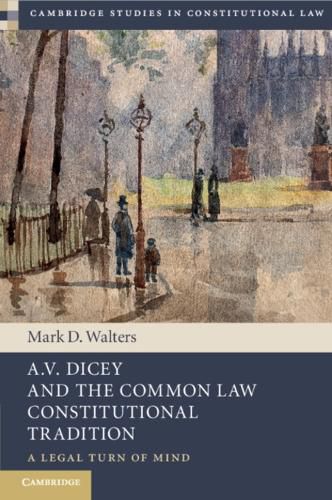Readings Newsletter
Become a Readings Member to make your shopping experience even easier.
Sign in or sign up for free!
You’re not far away from qualifying for FREE standard shipping within Australia
You’ve qualified for FREE standard shipping within Australia
The cart is loading…






In the common law world, Albert Venn Dicey (1835-1922) is known as the high priest of orthodox constitutional theory, as an ideological and nationalistic positivist. In his analytical coldness, his celebration of sovereign power, and his incessant drive to organize and codify legal rules separate from moral values or political realities, Dicey is an uncanny figure. This book challenges this received view of Dicey. Through a re-examination of his life and his 1885 book Law of the Constitution, the high priest Dicey is defrocked and a more human Dicey steps forward to offer alternative ways of reading his canonical text, who struggled to appreciate law as a form of reasoned discourse that integrates values of legality and authority through methods of ordinary legal interpretation. The result is a unique common law constitutional discourse through which assertions of sovereign power are conditioned by moral aspirations associated with the rule of law.
$9.00 standard shipping within Australia
FREE standard shipping within Australia for orders over $100.00
Express & International shipping calculated at checkout
In the common law world, Albert Venn Dicey (1835-1922) is known as the high priest of orthodox constitutional theory, as an ideological and nationalistic positivist. In his analytical coldness, his celebration of sovereign power, and his incessant drive to organize and codify legal rules separate from moral values or political realities, Dicey is an uncanny figure. This book challenges this received view of Dicey. Through a re-examination of his life and his 1885 book Law of the Constitution, the high priest Dicey is defrocked and a more human Dicey steps forward to offer alternative ways of reading his canonical text, who struggled to appreciate law as a form of reasoned discourse that integrates values of legality and authority through methods of ordinary legal interpretation. The result is a unique common law constitutional discourse through which assertions of sovereign power are conditioned by moral aspirations associated with the rule of law.